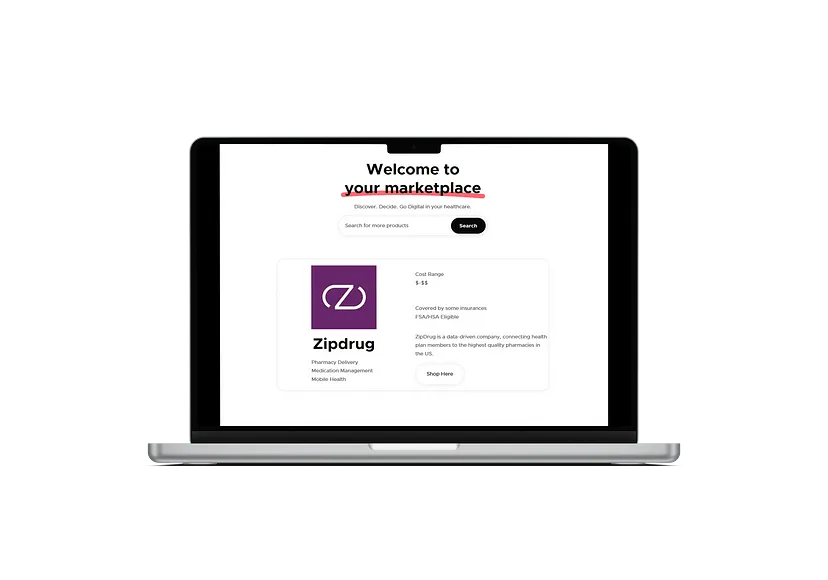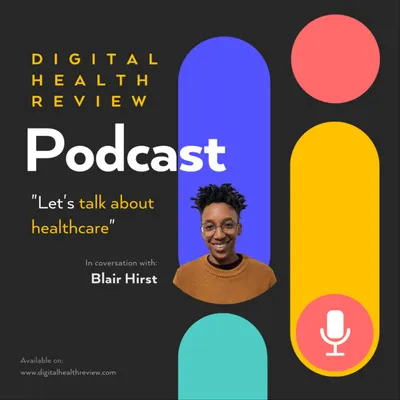
Blair Hirst, founder of Digital Health Review
Blair Hirst is the definition of a Black leader excelling in STEM. The biomedical engineer has a pedigree trained in the prestigious classrooms of Brown and NYU. For seven-years, she partnered with some of the world’s top doctors — and their patients — to develop industry-innovating products at one of the world’s most prestigious hospitals, Memorial Sloane Kettering. But it was Blair’s childhood experience of watching her family become medical migrants — moving their lives across the country to give her sister a chance at good health — that spawned her decisive move into health-tech and the launch of her company, Digital Health Review, a virtual platform that allows individuals to research and find safe and effective digital health products. Read on to learn how Blair plans on making the latest medical technology accessible to everyone across America below:
digitalundivided: What’s your founder’s origin story?
Blair Hirst: My family is from Baton Rouge, and I have a sister who had sickle cell anemia. The healthcare system down there isn’t the best. There was just a general lack of quality care to the point where things were becoming life-threatening. My mom moved us to Maryland to access better healthcare. The term for that is known as medical migrants.
I became an engineer and started building products for hospital systems. I was building for both patients and clinicians. It was (all about) two people meeting at the point of care and really talking about all their pain points. The institution I was working with at the time was really trying to push as many innovative practices as possible. We were doing Telehealth before Telehealth was sexy. I got to see the benefit that patients were having in their care, in their outcomes, quality of life, and how they could show up because they were getting access to these tools.
But on the flip side, I also saw that the people who had access to these tools were very one-sided: it was those who had access to either very good care providers. But those who did not were not receiving that same level of care.
So, I started Digital Health Review to solve that issue of how you empower and ensure folks can take control of their own health and give them enough knowledge to proactively take care of their health by using what’s out there in the market with consumer technology. It’s a long battle. But that’s my journey and why I started to help. It’s personal, but it’s also systemic. I’m trying to chip away at it slowly.
digitalundivided: Why is your product necessary for this market?
Blair Hirst: You can only advocate for what you know. Let’s start there, right? If you know something exists, you can advocate for that in your care. Let’s bring it to something a little bit more tangible. Health Care is expensive. It is beyond expensive. Then, some folks are not as healthcare literate about their healthcare options and pay way more than folks who do a little bit of education. They can get and choose care providers and systems that work well for them and save them money.

Digital Health Review allows consumers to research products that will be safe and effective for their drug needs
digitalundivided: As a founder, what has been the biggest struggle you’ve had to overcome in building your business?
Blair Hirst: That’s a great question. I think the first thing that I would probably say would be capital. For a long time, I thought that was a cop-out statement. But it all comes down to that. Capital helps companies grow in ways they want to grow.
But [not having capital has] also been the biggest blessing. Being bootstrapped, I’ve learned a lot of things. I’ve made lots of mistakes. I’m still making mistakes, and I’m still learning. But I’ve also saved myself some headaches. Now, a lot of venture-backed founders and startups are experiencing a dramatically changed climate, and maybe their level of trajectory or growth looks completely different without venture-backed capital.
In some ways, it maybe levels the playing field for folks who are bootstrapping. But I would say capital has definitely been the biggest challenge but also the most significant blessing because I’ve been able to learn so much solo.

Digital Health Review’s podcast can be found on Spotify and Google podcasts
digitalundivided: How did participating in digitalundivided’s BIG program help you navigate your founder journey?
Blair Hirst: I was advising other folks about their startup journey and commenting that sometimes, it’s very powerful to join a program. If you’re thinking about joining a program with a group of folks in your wheelhouse, you get a web of industry experts. But I also think for founders like myself who are Black, nonbinary, or women who have tech backgrounds, your circle gets very small. There’s not a lot of us. There’s a lot of imposter syndrome in certain areas. If you’re starting a company and thinking about putting yourself out there, joining a program like digitalundivided can help you see yourself, right? You’re like, ‘okay, I am not the only one. Everyone else here is trying to figure it out, too, you know? Everyone is in different stages and can help each other. I’m big on community, and digitalundivided helped me because the first step in this journey was finding a community to support me. Having it be my first step was really beneficial because otherwise, I may have been a little disenfranchised about the whole process.
digitalundivided: What advice do you have for other entrepreneurs on their journey?
Blair Hirst: Continue to make sure you understand your “why”. Why are you doing what you’re doing? Have that be the focus of how you build your company and grow your company.
Is your startup ready to go to market? BIG is a free 12- week program providing Latina and Black women entrepreneurs with the network, know-how, and scalable revenue model to get there. Apply to digitalundivided’s BIG program today! Applications close on April 27th.
[Editors note]: This interview has been lightly edited from its original transcription.

